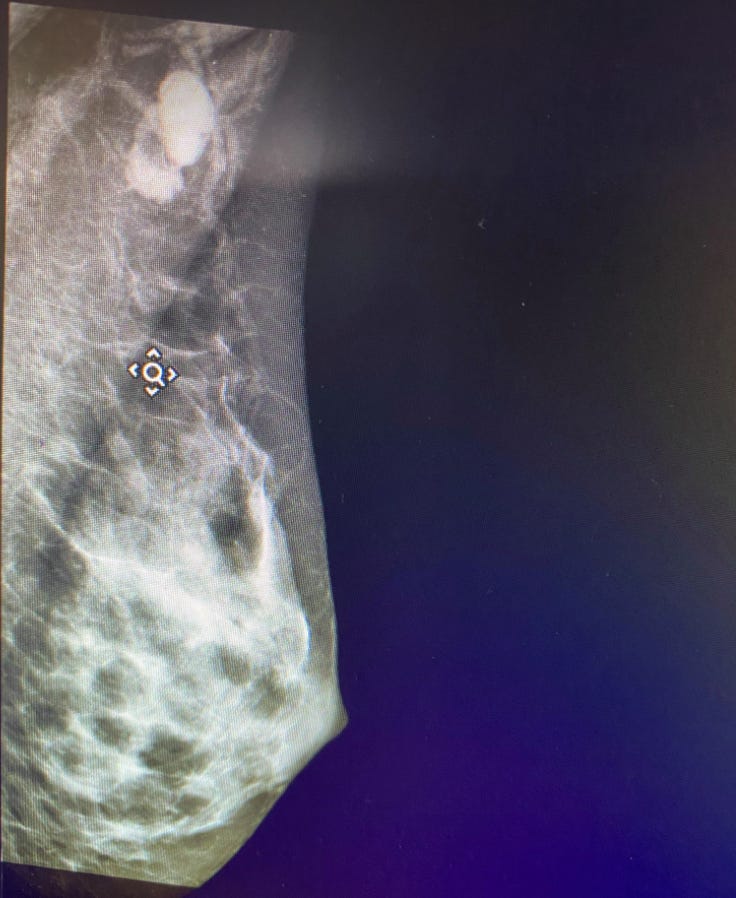There has been so much talk about COVID-19 vaccines potentially affecting menstruation (which I covered here), but there is something that we definitely know about the vaccine and that isn’t being discussed much—its effect on mammograms
As a vaccination triggers the immune system, it can cause lymph nodes to swell, typically those closest to the vaccination site (armpit and neck, most commonly). This is totally normal. It means the lymph nodes have received the signal that something foreign has been injected, and they are now doing their thing. This is not a COVID-19 vaccine phenomenon, it is a vaccine phenomenon, although it may be seen more with some vaccines versus others.
After the first dose of the Moderna COVID-19 vaccine, 11.6% of people had swollen lymph nodes in their armpit (versus 5% for placebo), and after the second injection, it was 16.0% of people (versus 4.3% for placebo). The Pfizer trial didn’t specifically ask about swollen lymph nodes, as the Moderna trial did, but more patients in the Pfizer trial volunteered that it happened to them with the vaccine versus the placebo. So it clearly happens with both the mRNA vaccines.
Breast cancer screening comes into play here because swollen lymph nodes in the armpit (axillary lymphadenopathy) can show up on mammograms (as well as MRI scans of the breast), and when they do they are concerning for cancer, even when there is no other suspicious findings. Even if your lymph nodes don’t feel swollen, they can still be enlarged on mammogram or MRI.
Here is a mammogram from someone who was recently vaccinated, the white lumps in the top left are the lymph nodes.
The problem is the radiologist doesn’t know if these swollen lymph nodes are vaccine-related lymph nodes or cancer-related lymph nodes, so more testing is needed. Typically, this is an ultrasound of the lymph nodes, and then if there is nothing concerning a follow up ultrasound is done approximately 4-8 weeks later to make sure the enlarged lymph nodes are now normal size. Lymph nodes with cancer won’t shrink, but those enlarged because of a vaccine reaction will. These ultrasounds adds stress, inconvenience, and expense for many people.
Many who needed mammograms delayed them due to the pandemic. Now that you may feel safe going in for this kind of screening, you should think about whether you have been recently vaccinated when scheduling. Ideally, it’s best to to delay the mammogram until you are at least four to six weeks past your last dose of the vaccine, so the swelling in the lymph nodes has had time to go away. This will prevent the stress of finding enlarged lymph nodes as well as the expense of other tests and the hassle of returning for a repeat ultrasound.
If delaying your mammogram isn’t possible or medically advisable, then make sure to let them know that you had the vaccine recently and which arm. If you need to come back for a follow-up, understand that it is quite common and swollen lymph nodes in an otherwise normal mammogram are rarely cancer, but the radiologist must make sure that what is appearing on the mammogram is a benign reaction to a vaccine and not something else that needs further investigation.






very useful information. thanks!